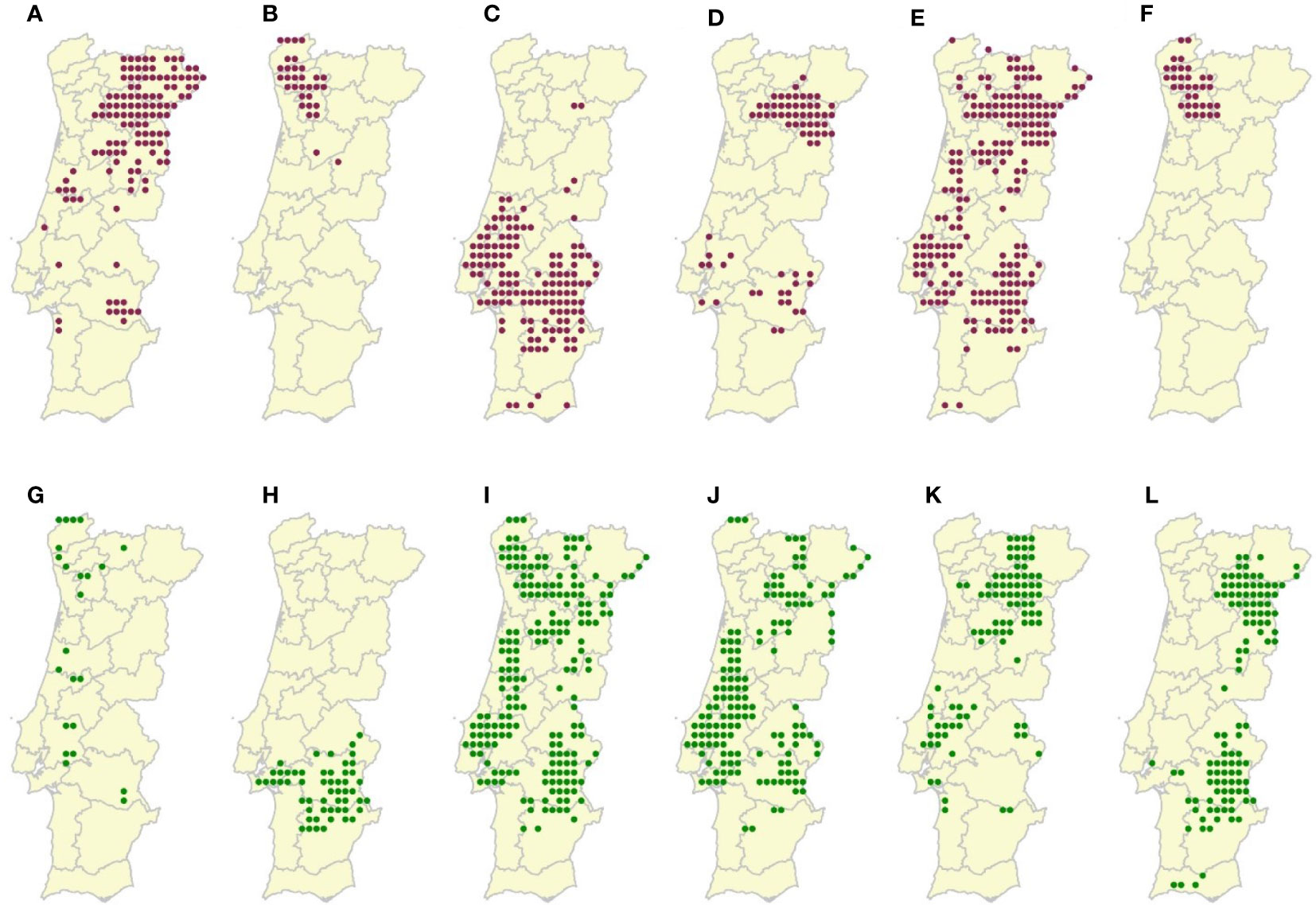
94% of researchers rate our articles as excellent or good
Learn more about the work of our research integrity team to safeguard the quality of each article we publish.
Find out more
CORRECTION article
Front. Plant Sci. , 24 July 2023
Sec. Plant Biophysics and Modeling
Volume 14 - 2023 | https://doi.org/10.3389/fpls.2023.1232948
This article is a correction to:
Relocation of bioclimatic suitability of Portuguese grapevine varieties under climate change scenarios
A corrigendum on
Relocation of bioclimatic suitability of Portuguese grapevine varieties under climate change scenarios
by Adão F, Campos JC, Santos JA, Malheiro AC and Fraga H (2023). 14:974020. doi: 10.3389/fpls.2023.974020
Error in Figure/Table
In the published article, there was an error in the Figure 2 caption as published. The letters in the caption corresponding to the white and red grape varieties were switched.
Caption as published:
Figure 2 Sampled locations of the (A) Alvarinho (number of locations, N=23), (B) Antão-Vaz (N=54), (C) Arinto (N=198), (D) Fernão-Pires (N=153), (E) Malvasia-Fina (N=92), (F) Síria (N=113), (G) Bastardo (N=123), (H) Borraçal (N=31), (I) Castelão (N=137), (J) Touriga-Franca (N=67), (K) Touriga-Nacional (N=202), and (L) Vinhão (N=33) grapevine varieties in mainland Portugal. Green dots represent white varieties and red dots represent red varieties. Polygons represent Portuguese NUTS 3 administrative units.
Figure 2 and its corrected caption appear below.

Figure 2 Sampled locations of the (A) Bastardo (Number of locations, N=123), (B) Borraçal (N=31), (C) Castelão (N=137), (D) Touriga-Franca (N=67), (E) Touriga-Nacional (N=202), (F) Vinhão (N=33), (G) Alvarinho (N=23), (H) Antão-Vaz (N=54), (I) Arinto (N=198), (J) Fernão-Pires (N=153), (K) Malvasia-Fina (N=92), and (L) Síria (N=113) grapevine varieties in mainland Portugal. Red dots represent red varieties and green dots represent white varieties. Polygons represent Portuguese NUTS 3 administrative units.
Corrected Caption:
The authors apologize for this error and state that this does not change the scientific conclusions of the article in any way. The original article has been updated.
All claims expressed in this article are solely those of the authors and do not necessarily represent those of their affiliated organizations, or those of the publisher, the editors and the reviewers. Any product that may be evaluated in this article, or claim that may be made by its manufacturer, is not guaranteed or endorsed by the publisher.
Keywords: viniculture, future climate, ecological niche models, ensemble modeling, grape varieties, Europe, BIOMOD 2
Citation: Adão F, Campos JC, Santos JA, Malheiro AC and Fraga H (2023) Corrigendum: Relocation of bioclimatic suitability of Portuguese grapevine varieties under climate change scenarios. Front. Plant Sci. 14:1232948. doi: 10.3389/fpls.2023.1232948
Received: 01 June 2023; Accepted: 12 July 2023;
Published: 24 July 2023.
Edited and Reviewed by:
Brian N. Bailey, University of California, Davis, United StatesCopyright © 2023 Adão, Campos, Santos, Malheiro and Fraga. This is an open-access article distributed under the terms of the Creative Commons Attribution License (CC BY). The use, distribution or reproduction in other forums is permitted, provided the original author(s) and the copyright owner(s) are credited and that the original publication in this journal is cited, in accordance with accepted academic practice. No use, distribution or reproduction is permitted which does not comply with these terms.
*Correspondence: Filipe Adão, ZmlsaXBlYWRhb0B1dGFkLnB0
Disclaimer: All claims expressed in this article are solely those of the authors and do not necessarily represent those of their affiliated organizations, or those of the publisher, the editors and the reviewers. Any product that may be evaluated in this article or claim that may be made by its manufacturer is not guaranteed or endorsed by the publisher.
Research integrity at Frontiers

Learn more about the work of our research integrity team to safeguard the quality of each article we publish.